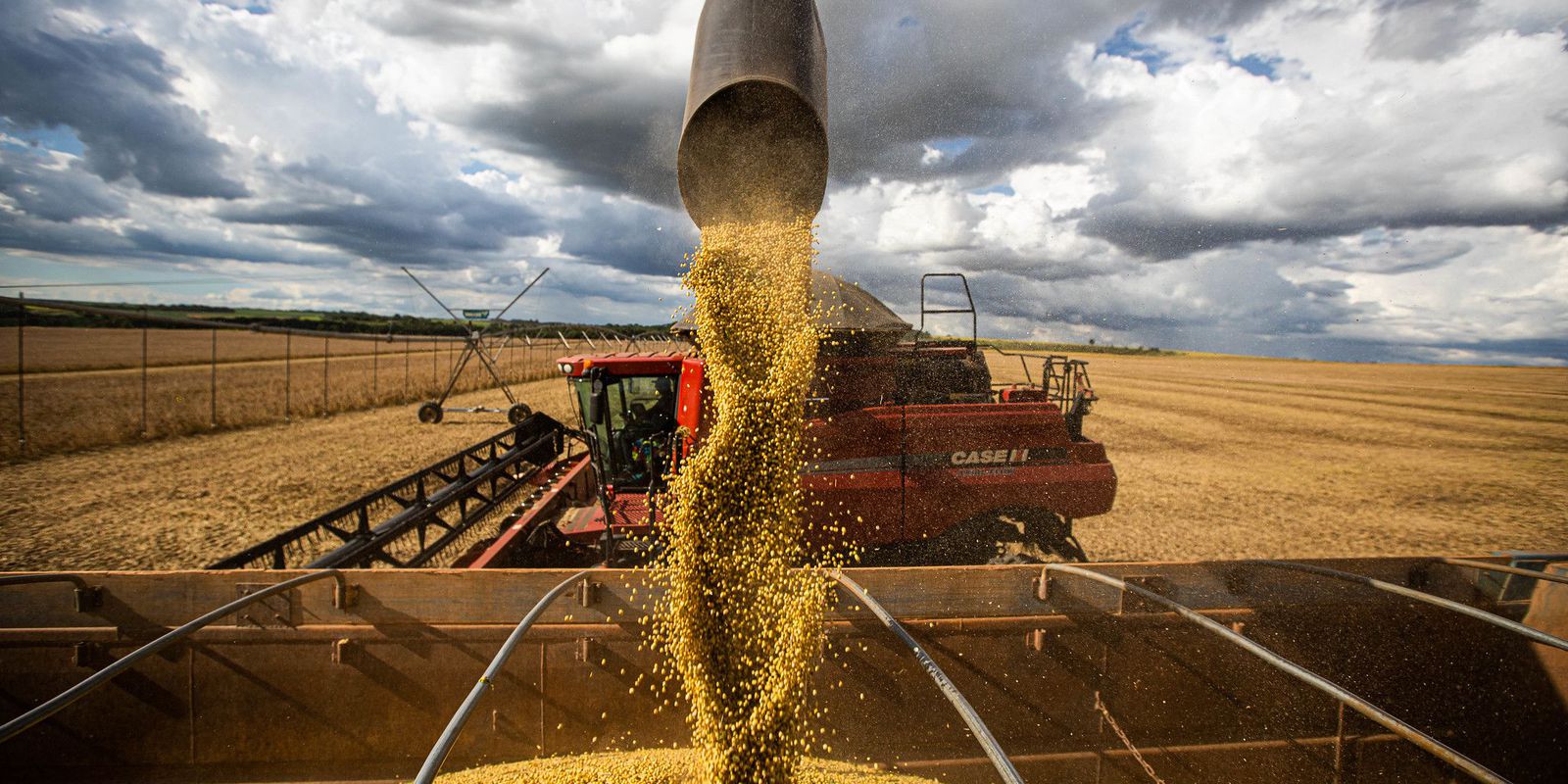The Brazilian agribusiness trade balance showed a positive balance, in January of this year, of US$ 7.7 billion. The sector’s exports grew 57.5% in relation to the same month last year, with a result in a value of US$ 8.8 billion, while imports fell to US$ 1.1 billion, a 15.5% drop in the same comparison.
The total trade balance, which includes all sectors, in addition to agriculture, shows a deficit of US$ 214.4 million. The information was released today (14) by the Institute of Applied Economic Research (Ipea).
In the analysis of the last 12 months, the increase was 23.1% in agricultural exports and 16.7% in imports, which contributed to the agribusiness trade balance of US$ 108.5 million in this period.
According to the Ipea researchers responsible for the study Ana Cecília Kreter, Fábio Servo and Rafael Pastre, January is traditionally a month with fewer shipments to agribusiness.
However, the level reached by the sector in January 2022 not only surpassed the performance of January 2021, but was 37.1% above January 2019, in the pre-pandemic period, when the country exported US$ 6.4 billion.
soy complex
Of the US$ 3.2 billion more exported in January this year, the soy complex, which includes soy beans, soy meal and soy oil, represented US$ 1.6 billion, with an increase, respectively, of 5,223.9 %, 44.7% and 1,974% in the values exported by these products, compared to 2021.
According to Ipea, the high percentages can be explained by the increase in the amount exported: 4,853.6% of soybeans alone. The researchers also highlighted that the average price of soybeans has been on a growth trajectory in the international market since last year.
Therefore, “since January is an off-season month for grain for Brazil, any increase in shipments has a more pronounced impact on the growth of value and volume”, reports the study.
China was the main destination for Brazilian soybeans. The Chinese market imported US$ 991.6 million from Brazil in January, due to insufficient domestic stock to meet domestic demand and the growing evolution of Chinese livestock.
India, which until then had a marginal share in the purchase of soybean oil from Brazil, increased shipments of the product, with imports of US$ 188.6 million in January 2022. In the same month of 2021, the Indians had not imported this item.
Beef exports rose 46.2% in value and 25.7% in volume in January this year. Corn, whose commercialization was hampered by the break in the second grain harvest in 2021, started the year with an increase of 45.6% in value and 16.5% in quantity.
Chicken meat also showed an expansion of 42.8% in the value exported compared to January 2021. Brazil, which is the world’s largest exporter of this animal protein, shipped US$ 181 million more in January this year, which also contributed for the good performance of the sector.
imports
Contrary to exports, the country imported US$ 202.2 million less than last year, which corresponds to a 15.5% drop in the total of agribusiness products purchased from abroad.
from 15 commodities (agricultural and mineral products sold on the foreign market) monitored by Ipea researchers, 12 showed a drop in the amount imported in January and nine in value, compared to the same month last year.
Wheat continued to lead the list of imported products, with US$ 138.4 million, showing a retraction of 10.7%. The Ipea study identifies, however, that the drop in the amount of wheat imported (-22.1%) reflects the good Brazilian harvest in 2021.
As with products on the export agenda, most imports showed an increase in average prices in January 2022 compared to 2021.
With the exception of coffee, sugar and cotton, the other products on the export list monitored by Ipea showed growth in value and quantity compared to January last year.
Even so, shipments in the coming months will depend on the current harvest. “The impacts of the La Niña climate phenomenon and the production of Brazil’s main competitors will also be decisive for the performance of the agribusiness trade balance in 2022”, signaled the IPEA researchers.









